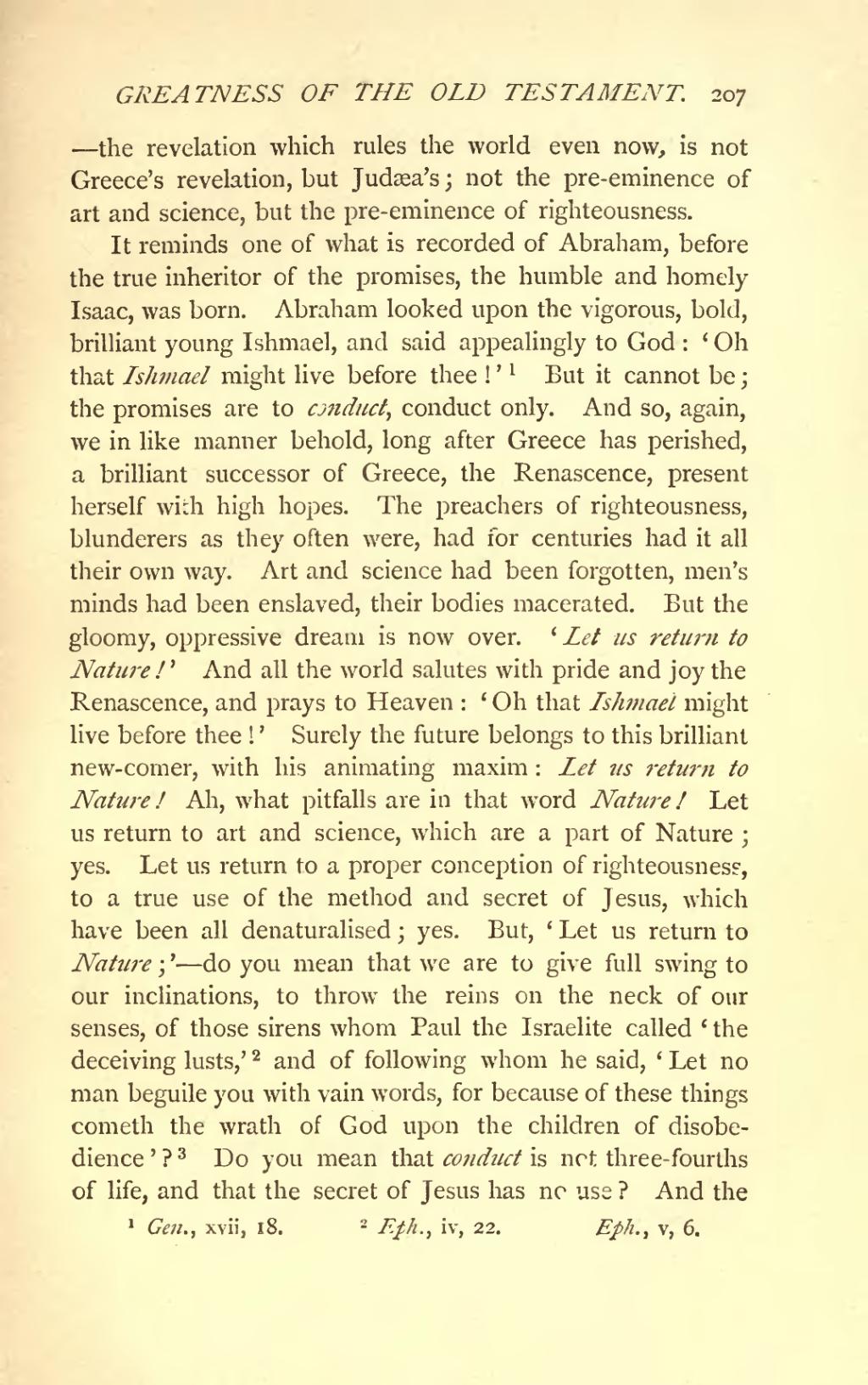—the revelation which rules the world even now, is not Greece's revelation, but Judæa's; not the pre-eminence of art and science, but the pre-eminence of righteousness.
It reminds one of what is recorded of Abraham, before the true inheritor of the promises, the humble and homely Isaac, was born. Abraham looked upon the vigorous, bold, brilliant young Ishmael, and said appealingly to God: 'Oh that Ishmael might live before thee!'[1] But it cannot be; the promises are to conduct, conduct only. And so, again, we in like manner behold, long after Greece has perished, a brilliant successor of Greece, the Renascence, present herself with high hopes. The preachers of righteousness, blunderers as they often were, had for centuries had it all their own way. Art and science had been forgotten, men's minds had been enslaved, their bodies macerated. But the gloomy, oppressive dream is now over. 'Let us return to Nature!' And all the world salutes with pride and joy the Renascence, and prays to Heaven: 'Oh that Ishmael might live before thee!' Surely the future belongs to this brilliant new-comer, with his animating maxim: Let us return to Nature! Ah, what pitfalls are in that word Nature! Let us return to art and science, which are a part of Nature; yes. Let us return to a proper conception of righteousness, to a true use of the method and secret of Jesus, which have been all denaturalised; yes. But, 'Let us return to Nature;'—do you mean that we are to give full swing to our inclinations, to throw the reins on the neck of our senses, of those sirens whom Paul the Israelite called 'the deceiving lusts,'[2] and of following whom he said, 'Let no man beguile you with vain words, for because of these things cometh the wrath of God upon the children of disobedience'?[3] Do you mean that conduct is not three-fourths of life, and that the secret of Jesus has no use? And the
